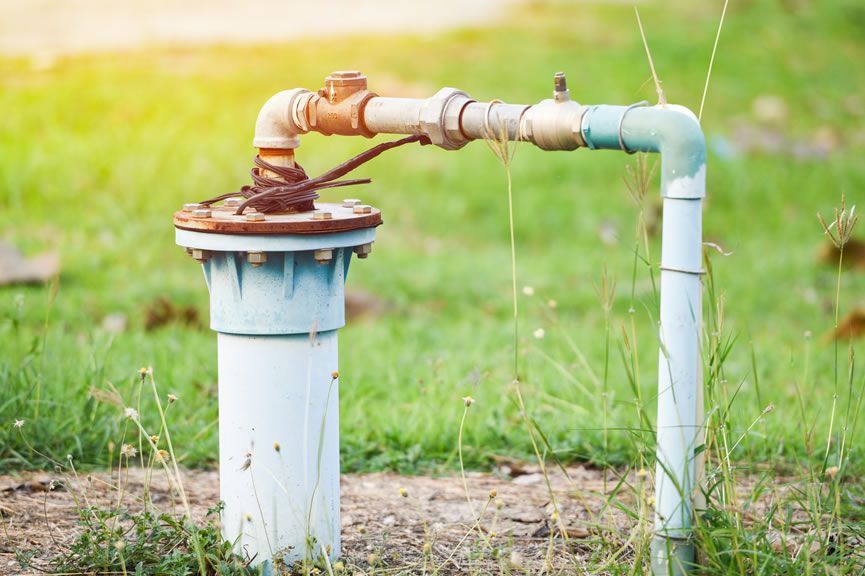Texas Well Water Filtration System: Ensuring Clean and Safe Water for Your Home
- aquacheckwaterconditioning

- Aug 21, 2024
- 3 min read
When a residence relies on well water, it means the occupants bear the responsibility for obtaining drinking water, water for household chores and outdoor use, from a privately owned well on the premises. Wells are typically constructed through a process of drilling deep into the earth’s surface to reach an underground aquifer—a natural reservoir of groundwater. This groundwater is subsequently extracted and conveyed into the residence, often through a system of pumps, or stored in a designated tank for later use. To ensure this water is safe and clean, installing a Texas well water filtration system is crucial.

Key Components of a Texas Well Water Filtration System
1. Filtration Stages
Pre-Filtration: This initial stage involves removing larger particles such as sediment, sand, and debris from the water. Pre-filters are essential to prevent damage to the main filtration system and extend its lifespan.
Activated Carbon Filtration: This stage addresses contaminants like chlorine, volatile organic compounds (VOCs), and bad odors. Activated carbon filters improve the taste and smell of the water, making it more palatable for drinking and cooking.
Reverse Osmosis (RO): For comprehensive purification, an RO system can be employed. This advanced technology removes a broad range of contaminants, including heavy metals, bacteria, and minerals that contribute to water hardness.
Post-Filtration: The final stage may include additional polishing filters or ultraviolet (UV) disinfection to ensure that any remaining microorganisms or contaminants are eradicated, guaranteeing the highest level of water purity.
2. Water Quality Testing
Regular water testing is crucial for maintaining the effectiveness of a Texas well water filtration system. Testing helps identify contaminants such as bacteria, heavy metals, and other impurities that may affect water safety. Comprehensive field testing is typically conducted to assess the specific needs of your well water and to customize the filtration system accordingly.
3. Maintenance and Upgrades
Routine maintenance of your filtration system is essential to ensure its longevity and optimal performance. This includes replacing filters as recommended, cleaning components, and addressing any detected issues promptly. Upgrading parts of the system, such as switching to a more advanced filtration technology or adding additional stages, may be necessary based on the results of regular water quality tests.
Addressing Common Well Water Issues
1. Hard Water
Hard water, which is high in calcium and magnesium, can cause scaling in pipes and appliances, reducing their efficiency and lifespan. A water softener integrated into the filtration system can help mitigate these issues by exchanging calcium and magnesium ions with sodium or potassium ions.
2. Contaminants
Well water may contain various contaminants such as iron, sulfur, nitrates, and bacteria. Specialized filters and treatment methods, like oxidizing filters for iron or chlorination systems for bacteria, can address these specific concerns.
3. Aesthetic Issues
Issues like unpleasant taste or odor can be addressed through activated carbon filters or other treatment options designed to improve water quality and overall aesthetic appeal.
Ensuring Optimal Well Water Treatment in Texas
Ensuring the safety and quality of your well water is crucial, particularly in areas where well water is the primary source of drinking and household water. A well-designed and properly maintained Texas well water filtration system helps address various challenges, from sediment and hardness to contaminants and aesthetic concerns. By investing in regular water testing and appropriate filtration technologies, homeowners can enjoy clean, safe, and great-tasting water throughout the year.
Maintaining Your System
To keep your water supply reliable, ensure that your Texas well water filtration system is regularly serviced and updated based on the specific needs of your well. Regular maintenance helps in identifying potential issues early, such as clogging or system wear. Timely upgrades are crucial for adapting to changes in water quality or household demands. Proper care ensures effective well water treatment in Texas, providing peace of mind and ensuring that your water remains safe and clean for all your household needs.

Comments